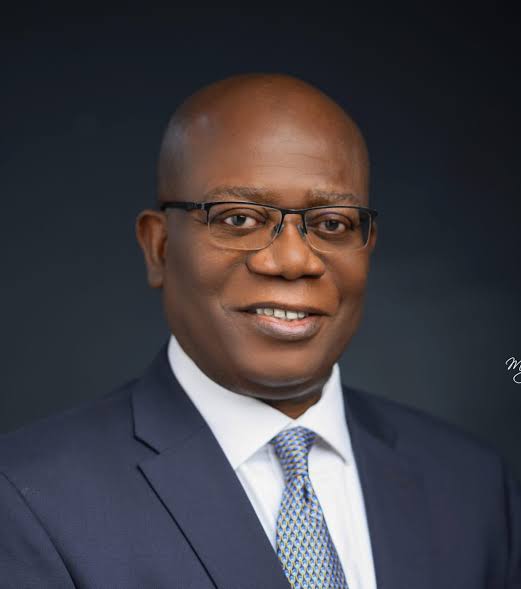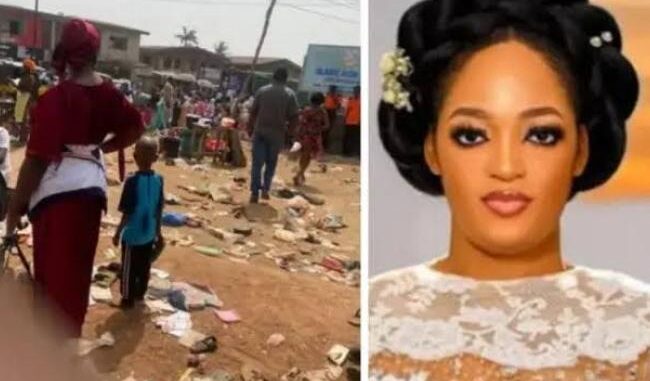News
Kaduna Assembly yet to report findings on El-Rufai — EFCC, ICPC

The Economic and Financial Crimes Commission and the Independent Corrupt Practices and Other Related Offences Commission have revealed that the Kaduna State House of Assembly was yet to report the alleged N423billion money laundering allegedly committed during the administration of former Governor of the state, Nasir El-Rufai.
Recall that the state Assembly had in April set up a 13-man panel, headed by the Deputy Speaker, Henry Danjuma, to probe El-Rufai’s administration over allegations of wanton misappropriation of the state funds.
The ad-hoc committee was mandated to investigate all finances, loans and contracts awarded under the former governor.
The probe by the assembly came weeks after the incumbent governor of the state, Uba Sani, lamented that El-Rufai left him a huge debt profile.
Sani, who spoke during a town hall meeting in Kaduna, had said, “Despite the huge debt burden of $587m, N85bn, and 115 Contractual Liabilities sadly inherited from the previous administration, we remain resolute in steering Kaduna State towards progress and sustainable development.”
But while presenting the report during Wednesday’s plenary, Danjuma said most of the loans obtained under the El-Rufai’s administration were not used for the purpose for which they were obtained, while in some cases, due process was not followed in securing the loans.
Receiving the report, the Speaker of the Kaduna House of Assembly, Yusuf Liman, said that a total N423bn was siphoned by the El-Rufai’s administration while leaving the state with huge liabilities.
A copy of the report sighted by Sunday PUNCH read in part, “The Governor of Kaduna State between 29th May, 2015 to 29th May, 2023 as the Chief Executive Officer of the state breached his Oath of Office contained in the 7th Schedule to the Constitution of the Federal Republic of Nigeria (as amended and failed to exercise due discretion in the administration of the state, thereby indulged in: 1. Plunging the state into unwanted, unjustified and fraudulent domestic and foreign debts over and above the total Loans obtained by Kaduna State from 1965 to 1999 and the majority of which were obtained without due process.”
The Assembly, while adopting the report of the 13-man panel, asked the incumbent Governor, Uba Sani, to refer El-Rufai, his commissioner for Finance and other aides to relevant security agencies for investigation.
But El-Rufai, in a swift reaction by his media aide, Muyiwa Adekeye, knocked the report, describing it as false and scandalous.
“We are aware of news that the Kaduna State House of Assembly has adopted the report of the ad hoc committee it asked to probe the El-Rufai government.
“We have not been availed a copy of the report, to which we would respond robustly whenever we obtain it. We affirm the integrity of the El-Rufai government and dismiss the scandalous claims being aired as the report of the committee,” Adekeye clapped back.
However speaking with Sunday PUNCH on Thursday, ICPC spokesperson, Demola Bakare, said the commission was yet to receive any petition from the state assembly over the money laundering allegations it leveled against the former governor.
Bakare said, “They made that statement, but we have received not the report; but if they bring it, we know what to do. It’s an intention. It’s still an intention, and they have not sent the report to us for investigation,”
Concerning whether the ICPC would commence a probe into the matter if it receives the report of the Kaduna State Assembly, the spokesperson answered in the affirmative.
“That is what we are established to do, if we receive a report, we don’t want to be criticised as killing the report; hence we’ll look into it, and if we’re able to establish a prima facie case, we’ll bring it to a logical conclusion. But we have not received any report in this regard,” Bakare noted.
Also, impeccable EFCC sources who spoke to our correspondent on the condition of anonymity because they were not authorised to speak, confirmed that the EFCC also was yet to receive a petition from the Kaduna State Assembly concerning the money laundering allegations against El-Rufai.
A source said, “The EFCC does not work just based on what is reported. But if they (Kaduna Assembly) bring a petition to us, we’ll look into.”
Another source revealed, “There are processes and procedures, however, if they send a petition to the EFCC, we’ll act on it.”
The spokesperson for the EFCC, Dele Oyewale, could not be reached for comments over the development.
Meanwhile, the report revealed that a former Accountant General, Shizzer Nasada, and an ex-commissioner for Finance in the state, Bashir Saidu, provided the details of how the $350m World Bank loan secured by the El-Rufai’s government was appropriated.
In the report, Nasada, who served as the state AGF between 2019 and 2023, was quoted as revealing, “That the $350m loan form part of the loans in the state, ”adding that, “In 2015, N1bn was collected as loan from Zenith Bank, salaries paid accrued to N14.3bn and a loan was collected from the Excess Crude Account Facility.”
He also disclosed, “That there was no further approval from the state assembly or National Assembly before the $350m loan facility that was given to Kaduna State Government in trenches because there was no revalidation of the approval and resolution from the ninth assembly.”
He added, “That, the total domestic loans in 2015 was N40bn and in 2023, another N20bn was collected and that the P4R Project was attached to the $350m collected in 2017.”
Similarly, the report stated that Saidu, who served between 2019 and 2022, revealed, “That the $350m loan was approved by the Executive Council in 2017 and the draw down commenced in 2019.”
“The proceed was lodged in an account opened with Access Bank. One Maryam Dangaji was assigned as the Project Coordinator for P4R and was responsible for the accounts. The purpose of collecting the loan could have changed due to the delay in accessing same, hence, most of the things to be utilised by the loan have been executed,” the report quoted Saidu as saying.
News
How soldiers damaged my house for doing my job – ECTDA Chair, Hon. Uche Anya

The Chairman of the Enugu Capital Territory Development Authority, ECTDA, Rt. Hon. Uche Anya has narrated how soldiers from 82 Division of the Nigeria Army invaded his residence by 2.30am and destroyed his residence for carrying out a town planning regulation on an army property in Enugu.
According to Anya, the soldiers who some of them were on mufti, in the wee hours of Sunday morning, invaded his residence with armoured personnel carriers, forcefully jumped into his compound and destroyed most parts of his house and abducted him.
His offence, he explained, was that he demolished a fence that was being made round an army property at GRA area of the Coal City, which the army did not obtain approval plan and permit from his office before embarking on the construction.
“We pleaded with them that we are from the ECTDA and needed to see their approved plan and permit but they asked me to call the General Officer Commanding (GOC) 82 Division, Enugu.
“We insisted on seeing their approval, which they did not provide, leading to our stopping them from working and marking the place with ‘Stop Work’ notice immediately.”
He said that he thereafter reached out to the GOC and informed him about what transpired, but that the army said that they were trying to secure their land.
“I told him that under our law, once a development is taking place in the capital territory, there must be permission. So, three days later, in the course of our routine work, we discovered that they had wiped out our stop work order and proceeded with the work. We rolled down our equipment and pulled down the fence because they reneged on our agreement,” Anya narrated.
The Capital Territory Chairman said that two hours later, he started noticing strange movement around his street, with some people taking photographs.
“So, around 2:30a.m, two Armoured Personnel Carriers (APCs) arrived on my street. Some people in mufti with guns jumped into my compound and I was seeing them through my CCTV. They tried to break into the house but it took them almost 90 minutes to break in through the kitchen.”
When our correspondent visited Anya’s residence, there was a total smash of most properties in the house starting from the gate to the entrance door and windows, television sets, CCTV cameras and so many other things were in complete ruin.
News
Ooni’s Ex- Wife, Naomi, 7 Others, In Trouble As 35 Kids Killed In Oyo Stampede

The Oyo State Police Command has confirmed the arrest of Prophetess Naomi Silekunola, the estranged wife of the Ooni of Ife, Oba Adeyeye Ogunwusi, and seven others for the Christmas party tragedy in Ibadan, Oyo State.
The police also in a statement by SP Osifeso Adewale, added that 35 children had been confirmed dead so far with six others critically
Recall that Agidigbo FM, a prominent private radio station, disclaimed involvement in the ill-fated children’s festive party that tragically resulted in multiple deaths on Wednesday morning in Ibadan, Oyo State capital.
SaharaReporters earlier broke the news about how tragedy struck on Wednesday morning at the Islamic High School in Bashorun, Ibadan when a stampede occurred during a children’s Christmas party.
The station’s management clarified they were not sponsors or organisers of the event, contrary to initial reports. It identified the organiser as WINGS (Women In Need Of Guidance and Support), whose founder is Queen Naomi Silekunola Ogunwusi, the ex-wife of the Ooni of Ife, Oba Adeyeye Enitan Ogunwusi.
Eyewitnesses report that many children were trampled in the chaos, with several others injured.
Meanwhile the police statement said, “Sequel to the stampede incident recorded on Wednesday 18/12/2024 at the Islamic High School, Basorun, Ibadan venue of the family event Organized by Wings Foundation and Media partners Agidigbo FM, the Oyo State Police Command wishes to inform the good people of the State that (8) Persons have since been arrested for their various involvements.
“These persons include the main event sponsor, Prophetess Naomi Silekunola ’f’ age 31yrs, Fasasi Abdulahi, ’m’ age 56yrs (School Principal Islamic High School, Ibadan), Genesis Christopher, ’m’ age 24yrs, Tanimowo Moruf,’m’ age 52yrs, Anisolaja Olabode, ‘m’ age 42yrs, Idowu Ibrahim, ‘m’ age 35yrs and Abiola Oluwatimilehin, ’m’ age 25yrs.
“So far (35) Thirty-Five Minors have been documented Dead while (6) Six others are critically injured and on various Medical Interventions.
“In furtherance of the above, the case has since been transferred to the Homicide Section of the State Criminal Investigation Department, Iyaganku with the Deputy Commissioner of Police in charge leading the investigations.
“So also, residents around the axis are advised not to panic as they would witness high level patrols and visible Police presence to prevent hoodlums from taking advantage of the unfortunate situation.
“Finally, the Oyo State Police Command sympathizes with all the families and loved ones affected by the tragedy and assures the good people of the State that Justice will be served accordingly.”
News
Rashford leaving Man United could bring him to form-Keane

Roy Keane believes leaving Manchester United could do Marcus Rashford the “world of good” as he fears the forward will never regain his hunger at Old Trafford.
Rashford’s future appears to be in the balance after the 27-year-old, a product of United’s youth system, was left out of the Manchester derby.
United won 2-1 at Manchester City on Sunday, with Rashford telling journalist Henry Winter on Tuesday that he was “ready for a new challenge and the next steps”.
“I don’t mind what he said. I think it’s spot on,” former United captain Keane told the Stick to Football podcast.
“Sometimes a deal just works for everybody. It’s been going on for a year or two now, there’s obviously a bit of talent in there, he’s been at the club since he was a kid.
A change would probably do him the world of good, for him and his team and his family. Just go and play, maybe go abroad or whatever it might be.”
Rashford’s current contract at Old Trafford runs until 2028 and although he has been linked to several other clubs, United manager Ruben Amorim is keen for the England forward to stay.
But Keane said: “I always think if you lose that hunger, it is hard to get it back.
“Forget about the few bob (pounds) he’s earned over the years — and listen, good for him — but we know, the great players, it’s nothing to do with that.”
Keane added that leaving United could revive Rashford’s “real hunger” for on-field success.
“I think there’s a good chance he might get it back with a change of a club and scenery, a new country, a new league, whatever, but I don’t think he’ll get it back at United.”
Amorim, talking to reporters ahead of Thursday’s League Cup quarter-final at Tottenham, urged Rashford to “speak with the manager” rather than air his grievances publicly.
Rashford has scored 138 goals in 426 appearances for the club since making his senior debut in 2016.
However, he has lost form over the last 18 months with United and was also axed from England’s Euro 2024 squad.
Rashford has scored just 15 goals in 67 appearances since signing a lucrative new contract 18 months ago, with speculation over his future increasing in recent days.
The forward, who was absent from training on Monday through illness, is set to miss the League Cup quarter-final at Spurs.
Amorim is keen to keep Rashford but he admitted he would have handled the situation differently when he was a player.
“If this was me, probably I will speak with the manager,” he told reporters on Wednesday. “But, guys, let’s focus on Tottenham. Tottenham is the most important thing.”
-

 News21 hours ago
News21 hours agoReps Call for Revival of NAPAC to Boost Transparency, Accountability
-

 News20 hours ago
News20 hours agoReps Recommends Delisting NECO, UI, Labour Ministry, 21 Others From 2025 Budget
-

 News14 hours ago
News14 hours agoLawmaker laments over 2023, 2024, 2025 budget running in one circle
-

 News14 hours ago
News14 hours agoVideo: Tinubu Arrives Lagos, Meets Old ‘Friend’ Papa Ajasco
-

 News21 hours ago
News21 hours agoNigeria Needs Comprehensive Reforms To Expand Its Tax Base – Speaker Abbas
-

 Sports13 hours ago
Sports13 hours agoI Failed In Front of the World Four Years Ago — Lookman’s Touching Speech After Winning CAF Award
-

 Economy14 hours ago
Economy14 hours agoUK inflation rises further ahead of Bank of England rates decision
-

 News6 hours ago
News6 hours agoLeadership crisis rocks office of AGF, may delay payment of Dec salary








